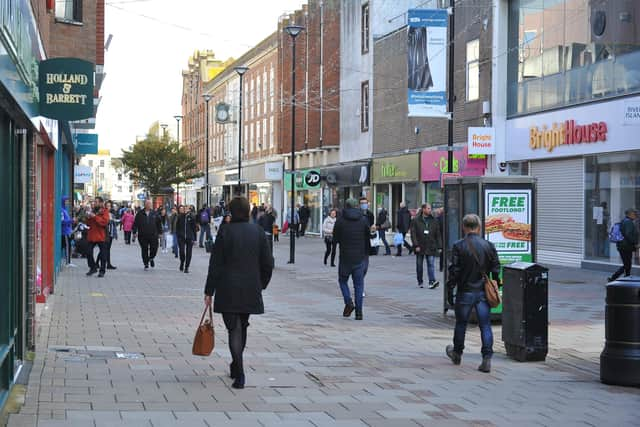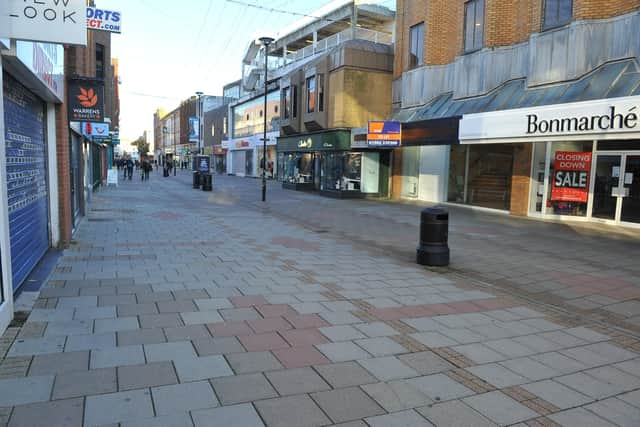How Worthing town centre weathered the pandemic storm
and live on Freeview channel 276
The Centre for Cities assessment, published on Monday, looked at how 52 city and large-town centres across the country had fared since March, 2020.
Of those looked at in the Cities Outlook 2020 study, Worthing’s was the least-affected town centre in the South East and the second-least-affected nationally, losing 17 weeks’ sales.
Advertisement
Hide AdAdvertisement
Hide AdOxford was worst hit, losing 41 weeks of sales with the number of empty storefronts increasing by 8.4 percent.


Worthing town-centre manager Sharon Clarke said: “All businesses have been challenged during the pandemic but Worthing has definitely shown resilience.
“Our outside shopping centre has helped shoppers feel safer and our close proximity to the seafront, where people turned for exercise, has helped encourage people back into the shops and hospitality venues.
“Since the easing of the first lockdown, we have welcomed 54 new businesses, which is great for the town.
Advertisement
Hide AdAdvertisement
Hide Ad“As with every town, we have lost some much-loved high street names, but the hope is that people will continue to support their local businesses so they can get back on their feet.”


Andrew Carter, chief executive of Centre for Cities, said: “While the pandemic has been a tough time for all high streets it has levelled down more prosperous cities and towns in the South East.
“Despite this, the strength of their wider local economies means they are well placed to recover quickly from the past two years.
“The bigger concern is for economically weaker places – primarily in the North and Midlands – where Covid-19 has actually paused their long-term decline. To help them avoid a wave of high street closures this year the government must set out how it plans to increase peoples’ skills and pay to give them the income needed to sustain a thriving high street.
“Many of these places are in the so-called ‘red wall’ so there is a political imperative for the government to act fast, as well as an economic one.”